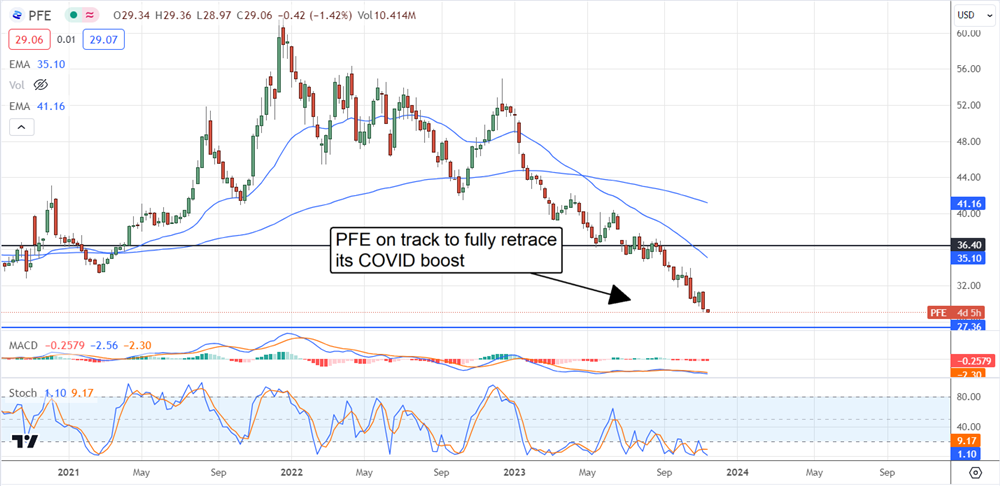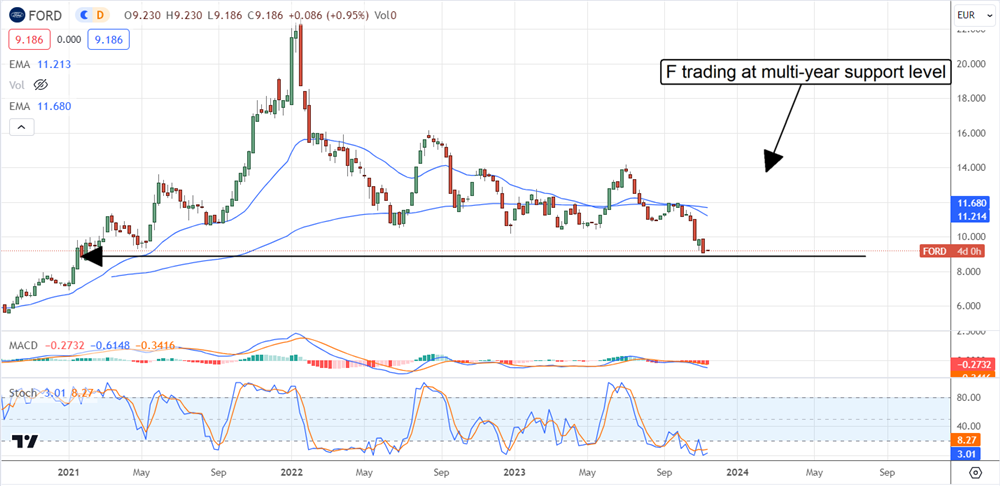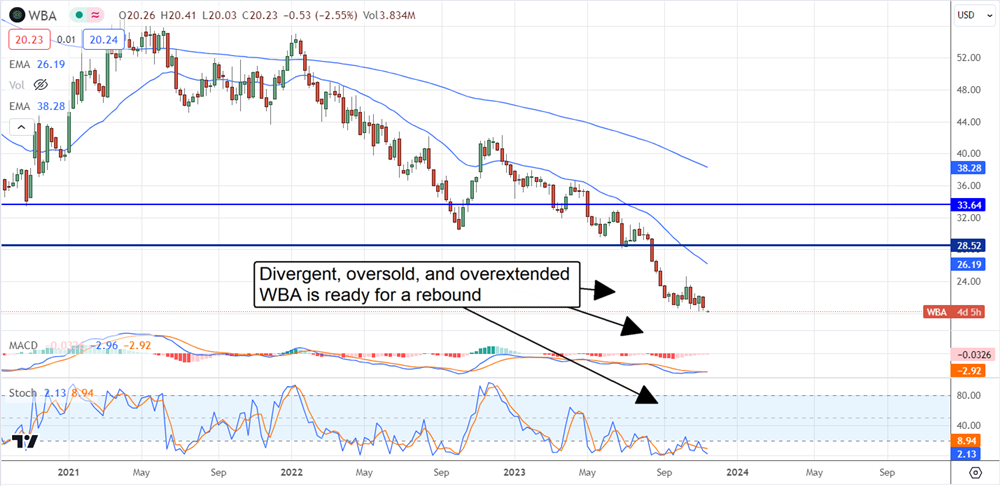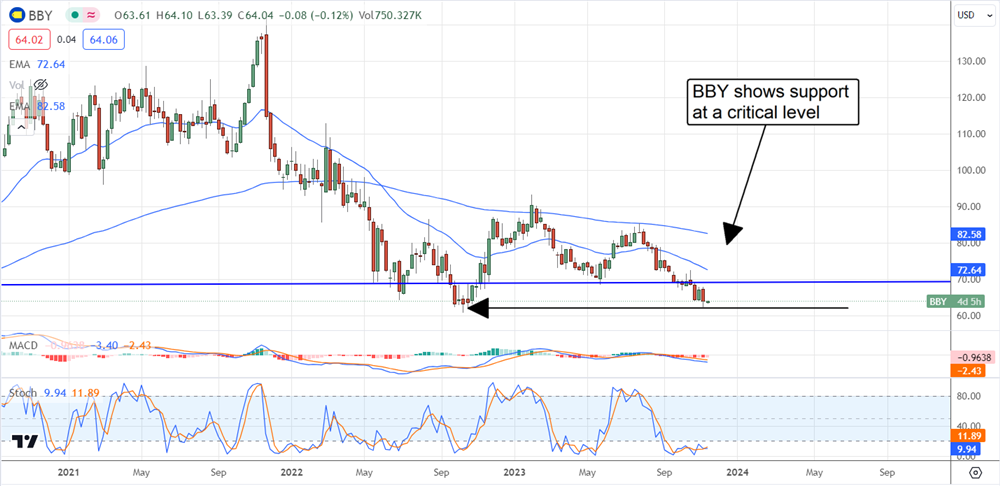
Marketbeat's stock screening tools are a wealth of investment ideas, including the 52-week low list. Stocks trading at 52-week lows often provide oversold value ready to spring back, given the right catalysts. Remember that stocks trading at or near their 52-week lows may also be in a downtrend, so it's best to be choosy when using this list. In this case, these high-yield buy-and-hold names provide deep-value opportunities that will pay off over time.
For this screening, the parameters were narrowed to stocks in any sector trading within 10% of their lows to avoid stocks already rebounding and higher-than-average yields to help mitigate risks. In addition, payout ratios needed to be below 60% to help with dividend safety and the possibility of distribution increases. The screen results reinforce that buy-and-hold stocks are always good, but you must wait for the correct times to buy them (and have the fortitude to hold them and buy more when they're down).
Pfizer fell off the COVID cliff
COVID-19 was a blessing for Pfizer (NYSE: PFE), driving their revenue to record highs. The bad news is that revenue is in a massive decline now that the impetus to get COVID shot after shot after shot has left the market. The upshot is that new drugs, including the only approved and very effective RSV vaccine, drive a healthy outlook for next year. Analysts expect revenue to increase by about 10% but for the margin to widen significantly.
Pfizer's earnings in 2023 are expected to double, producing a deep-value of 9X EPS with a high yield of 5.5%. The payout ratio in 2023 is below 60% and falls into the 20% range for 2024. Regarding growth, Pfizer has a record of annual increase, so another may be expected. Analysts rate the stock a Hold and see it moving up at least 10% at the low end of their target range. This stock is in an active downtrend but quickly approaching critical lows set in 2020, a full retracement of the COVID rally.

Ford is at a critical juncture
The Ford Motor Company (NYSE: F) market is at a critical juncture, with the stock down more than 50% from its high and trading near the one-year and three-year low. The market may fall a bit further before hitting the bottom, but a substantial support target at the current level coincides with price action before the pandemic.
Trading at this level, the stock is valued at only 5.5X earnings and pays about 6% in yield. Ford isn't a noted distribution growing stock but isn't afraid to pay out a special dividend when it's able. The payout ratio is very low, below 30%, so the dividend is unlikely to be affected by anything short of a significant economic event for which there is precedent: the Housing Crisis, the Global Financial Crisis and the COVID-19 pandemic being the last.

Walgreens Boots Alliance is deeply oversold
Walgreens Boots Alliance's (NASDAQ: WBA) share price dropped to a new low in the weeks following its Q3 report, but the move lower is losing momentum. The charts indicate this stock is oversold and overextending, with stochastic and MACD oscillators both low in their ranges and diverging from the price action. Among the reasons for selling are persistent weakness in earnings results; the reasons to buy are the value, the near-10% yield, and evidence of turnaround.
As big as it is, Walgreens has begun to make sequential improvements in margin and additional cost savings are expected. Assuming the trends continue as shown in Q3, the analysts who rate the stock a firm Hold may begin to raise their targets. Until then, they see this stock advancing about 5% at the low end of their range and more than 60% at the consensus.

Best Buy for consumer AI
Best Buy (NYSE: BBY) shares are showing support at a 52-week low and may be ready to complete a reversal. Sluggish growth and consumer outlook have weighed on the action despite the healthy 5.75% dividend yield. While consumer spending may be sluggish in the near term, the long-term outlook for Best Buy is robust. It is the most likely retailer to benefit from the budding consumer AI cycle and is already seeing demand.
Regarding the value, it's trading at 10X earnings, and analysts expect margins to widen next year. The dividend is reliably safe at 55% of this year's EPS target and has been increased at an aggressive 16% CAGR over the last 5 years. The pace of distribution increases may slow, but increases are expected to continue indefinitely.














